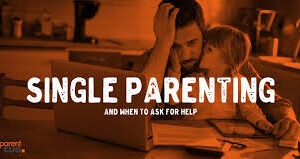FAMILY BACKGROUND, SCHOOL LOCATION AND PEER GROUPS AS PREDICTORS OF JUVENILE DELINQUENCY AMONG SECONDARY SCHOOL STUDENTS :: A CASE STUDY OF OYO WEST LOCAL GOVERNMENT AREA OF OYO STATE.
₦3,000.00
This study investigates family background, school location and peer groups as predictors of juvenile delinquency among secondary school students. A case study of Oyo West Local Government Area of Oyo State. The study will be delimited to a sample of approximately 20 (twenty) students from two secondary schools and 10 (ten) parents from Oyo West Local Government Area of Oyo State. It was also be delimited to children aged 10-18 years because it is the formative years during which delinquent behavior is likely to be exhibited, Besides, this group constitute the group of children who have been exposed to violence, poverty, neglect in the immediate social environment as observers or victims. However, it was delimited to school children for accessibility.
Description
CHAPTER ONE
- Introduction
A general survey of juvenile delinquency in Nigeria indicates at several casual factors which include background of family, school environment, influence of peer group, home location as well as the negative influence of the mass media. Eke (2004) notes that there are two main categories of delinquent behaviour Nigerian adolescents are engaged in: criminal and status offences. The criminal offences include stealing, arson, rape, drug offences and murder, burglary, pick pocket, and armed robbery. However, she listed status offences to include: running away from home, malingering, truancy etc. Involvement of adolescents in delinquent activities is on the increase in Nigeria.
The last two decades witnessed crimes ranging from minor stealing to major robbery and killing perpetuated by teens. There has been increasing concern of the Police and the general public on the seriousness of adolescent crime and conduct problems (Wu, Chia, Lee and Lee 1998). They reported that juvenile delinquency rate rose from 367 to 538 per 100,000 between 1986 and 1996. They claimed that most of the juveniles arrested in 1996 were arrested for petty crimes, such as theft, with about 38 percent arrested for shoplifting and 18 percent for simple theft. The outcome of their research also shows that most serious crimes, such as rioting, robbery and extortion accounted for 15 percent.
Children in single-parent homes are more likely to be delinquent, there is evidence to suggest that single-parent families, especially single mothers, expect less of their children, spend less time monitoring them and use less effective techniques to discipline them(Simons and Wallace, 2004). The above indicates that children with single parent have greater opportunities to participate in delinquent acts than children with two-parent. Many researchers agree that the foundation of adolescent delinquency is rooted in the kind of home the adolescent is brought up (Odebumi, 2007; Otuadah, 2008; Okpako, 2004; Utti, 2006). The basis for good behaviour orientation and good adolescents’ attitude development is founded on positive parenting. Okpako (2004) stated that the parents should be blamed and be made to take responsibility for the misfortune that befalls the adolescents.
Family context refer to the entire home setting within which the child is brought up and socialized. (Santrock, 2008). Family context characteristics such as type of family structure as determinant of who the child lives with and family socio economic status as relevant to kind of welfare and wellbeing the child receives. Other characteristics include relationship within family which affects cohesion among members and family parenting style as related to support and discipline play a dynamic role in the socialization of the child as he develops. A child finds himself growing up in a family context which ultimately determines behavior outcomes. Psychological tensions and emotional disturbances at home may drive the adolescents away from home or from school and have the potentials of exposing them to negative associations. Personal performances both at home and in the public may be affected (Okorodudu and Omoni, 2005).
The peer group is defined by Ryan (2001) as an association of people sharing certain characteristics such as age, social status. He further stated that the peer group is an important influence throughout one’s life being more critical during the developmental years of childhood. He also explained that the power of the peer group becomes more important when family relationships are not close or supportive. For instance when parents work extra hours and do not have time for their children they may turn to peer group for emotional support. Peer pressures have been known to be responsible for many children’s involvements in taking drugs, alcohol, sex, stealing, cultism and indecent dressing.
1.1 Background to the Study
Over the years, there have been different studies done within and outside Nigeria on the effect of Family background, School location and Peer group as a Predictors of Juvenile Delinquency among Secondary school students. An overview of juvenile delinquency in Nigeria points towards several casual factors including the negative influence derived from the Social / Mass media. In the Nigerian society, no day passes without the media reporting one crime or the other being committed by the youths. This downward decadence in moral standards has resulted in all sorts of moral, delinquent acts in the society; sexual promiscuity, abortion, cheating, stealing, teenage pregnancies, drug abuse, exam malpractice, political thugery, robbery, arson and indiscriminate killings to mention but a few (Okon, 1984).
In the 2011 election in Nigeria for example, children of school age were seen to have actively taken part in the post-election violence and looting that ensued (Vanguard Newspapers April, 2011). The Nigerian Government had devised and employed several measures aimed at curbing adolescents’ delinquency in our society but to no avail. For instance establishment and administration of juvenile justice; promulgation of juvenile laws and courts, establishment of remand homes, establishment of security and law enforcement agency etc.
Some research reports have shown that a large percentage of all juvenile delinquents come from homes that lacked normal parental love and care. Attention, love and warmth go a long way in assisting the child’s emotional development and adjustment (Odebumi, 2007). Adolescents exhibiting traits of friendliness, cheerfulness, positive emotions and good maturity traits, show evidently, that such adolescents come from homes where they are accepted and loved (Otuadah, 2006). Okpako (2004) noted that a child well brought up will remain a source of joy and happiness for such family. The neglected adolescent gradually becomes a drug addict, hardened criminal, aggressive, restive, arm robber, cultist, ritualist, rapist etc. The required parental monitoring and control (Ang & Goh, 2006) for adolescents‟ development may be hindered due to parents‟ serious involvement in economic activities to meet up with family financial commitments.
Edwards & Shane (2006) emphasized the importance of extended family ties in Latino culture as well as the strong identification and attachment of individuals with tier families. In Africa, parents expand beyond immediate mother and father to include members of the extended family, neighbours and every other person who in one way or the other is involved in upbringing of the child (Okpako, 2004).
In recent times, families are finding it more difficult to stay connected with their children’s education. This is most common to families living in populated areas such as Lagos where both parents work outside of the home. Camen (2007) noted that the extended family has become significantly less extended as mobility has increased. Parents are becoming isolated from their children and finding it difficult to keep a careful watch on what needs to be done to help them succeed in school. Many families are not even led by a parent, but by a grandparent, guardian or some other adult. With the changes in family lifestyle and indeed in societal makeup, schools are now finding it increasingly difficult to keep parents informed of and actively engaged in the day-to-day progress of their children (Deslandes & Bertrand, 2005). Teachers and administrators are discovering that the support they once received in getting students to do their homework is not there, because the parents are not home to insist that students should complete their assignments.
As a result of the challenges faced by families, many adolescents however, engage in risky behaviours’ such as substance abuse, dangerous dieting, eating disorders, staying out all night, unprotected sexual activity, bullying and stealing. In the view of Hussain (2006), he noted that most public secondary school students are often from poor and average families. These families face various problems causing emotional disturbance among their children. It should be noted that most of the problems being faced by our societies today are caused by family background, school location and peer group.
Therefore, this research foregrounds its relevance with the analysis of how family background, school location and peer group contribute to the rate of juvenile delinquency among secondary school students.
1.2 Statement of the Problem
Many Scholars have identified family structure; peer pressure as a major social problem which affects the whole society and constitutes a serious impediment to the growth and development of the country. Okorodudu and Omoni also observed that adolescents may exhibit suicidal tendencies, juvenile delinquency, vandalism, destruction of public property, maiming and murder of parents and violence against the larger society. The focus of this study is to determine to what extent juvenile commit crime, why they continued in delinquent act as well as the result of their delinquent acts to themselves and the society at large.
1.3 Purpose of the Study
The main purpose of the study is to investigate the Influence of Family Background, School location and Peer Group on juvenile delinquency among School adolescents in Oyo town. Hence, the general aim is expressed in the following specific objectives of the study which are to:
- determine the influence of family background and child’s involvement in delinquent behavior.
- examine the extent to which the teaching and learning environment in secondary schools can curb juvenile delinquency.
- investigate the influence of peer group and other personal characteristics in the promotion of delinquent behaviour.
- find out workable measures to minimizing the problem of juvenile delinquency in secondary school.
1.4 Research Questions
- Is there any correlation between family background and delinquent behaviour among school adolescents in Nigeria?
- Does parents’ socio-economic status have any effect on delinquent acts among juvenile in secondary school?
- Would school location have a negative effect on delinquent acts among secondary school students?
- Does peer group influence have any effect on delinquent behaviour among adolescents in secondary school?
1.5 Null Hypotheses
The following null hypotheses served as guide to this study.
Ho1 There is no any correlation between family background and delinquent behaviour among school adolescents in Nigeria.
Ho2 Parents’ socio-economic status does not have any effect on delinquent acts among juvenile in secondary school.
Ho3 School location does not have a negative effect on delinquent acts among secondary school students.
Ho4 Peer group influence does not have any effect on delinquent behaviour among adolescents in secondary school.
1.6 Significance of the study
This study will be significant and beneficial to Home Economists, family counselors’ educationist, researchers, parents and the Government. This study will be applicable to many people who may want to know the factors that could make or mar students’ during adolescence. Family counselors will find the results of this study beneficial by gaining insight into how family characteristics contribute to development of delinquent behavior. They will therefore use it as a base to pressurize the government on the need to strengthen the family unit thereby reducing delinquent acts among the young. It will also help them to come up with effective treatment plans for problem behavior in children.
Educationist and researchers will find this study very relevant in curriculum planning and future researches. Parents will especially benefit by being enlightened on how their own parenting and relationships can build or mar their children. Hence parents will be better equipped in positive parenting skills and maintaining good relationships in the family so as to provide an environment for healthy development of the child.
In conclusion, it will reveal to government the need to refocus its approaches to prevention of violence and delinquency among the young. Rather than relying on criminal justice, it will see the need for social support programs, equitable distribution of wealth to combat poverty and reduce hopelessness among families. Government will see the need to establishing youth friendly centers so as to foster positive peer interactions.
1.7 Scope and Limitations of the Study
This study investigates family background, school location and peer groups as predictors of juvenile delinquency among secondary school students. A case study of Oyo West Local Government Area of Oyo State. The study will be delimited to a sample of approximately 20 (twenty) students from two secondary schools and 10 (ten) parents from Oyo West Local Government Area of Oyo State. It was also be delimited to children aged 10-18 years because it is the formative years during which delinquent behavior is likely to be exhibited, Besides, this group constitute the group of children who have been exposed to violence, poverty, neglect in the immediate social environment as observers or victims. However, it was delimited to school children for accessibility.
1.8 Operational Definition of Terms
Juvenile: it refers to a person who is physiologically immature or undeveloped. Also relating to young people who have committed or accused of committing a criminal offense (Merriam Webster dictionary).
Delinquent: a young person who regularly performs illegal or immoral acts.
Juvenile Delinquency: conduct by juvenile characterized by antisocial behavior that is beyond parental control and therefore subject to legal action. It is also a violation of the law committed by a juvenile and not punishable by death or life imprisonment.
Family: a group of people who are related to each other
Background: the scenery or ground behind something.
Family Background: the details of a person’s family, education, experience, etc. a person’s family / social/ cultural/ educational/ class background.
School Location: School location refers to the community in which the school is situated, such as a rural area or urban area.
Student: a scholar, learner; especially one who attends a school.
Secondary School: a school intermediate between elementary school and college and usually offering general, technical, vocational, or college preparatory courses.
Peer Group: a group of people who belongs to the same age group or social group as someone else.







Reviews
There are no reviews yet.